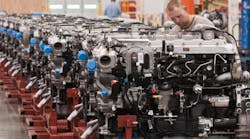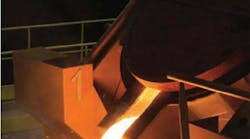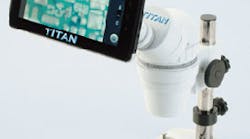February 9, 2007 — A consortium of European researchers have launched a program aimed at reducing dioxin emissions from metalcasting operations to levels that will be considered acceptable by European standards. The effort has a starting budget of 3 million euros ($3.9 million). Leading the research — known as the Diofur project — is Tecnalia-Fundicin, the metalcasting division of Spain's private research group, Tecnalia Foundation. Also participating are the IOD Technology Centre, Poland, France's CTIF; Belgium's VITO; three national foundry associations, including Spain's FEAF; and nine independent businesses. Included among the latter are three Spanish foundries, Guivisa, Fundiciones Infiesta, and Fundiciones Fumbarri.
The European Foundries× Assn. (CAEF), which has 20 different member associations from different countries, is cooperating in the effort. Also participating is Ecofond, a company that specializes in foundry-sand recycling and reuse.
Different members of the consortium represent different interests within the foundry industry, including iron casting, steel casting, machinery builders, and manufacturers of environmental equipment. Foundry associations and specialty research centers are involved, too.
The research program has been organized in five areas of activity and practical development: information exchanges to and among small/mid-sized business: developing process parameters; developing new dioxin elimination technologies; training/dissemination of research results, and evaluation of results.
Tecnalia, FEAF, and other concerned organizations proposed the Tecnalia project to the European Commission.
Dioxins are a normal by-product of combustion processes, and though foundries are not significant emitters of dioxins their emissions frequently exceed the EU's Directive on Incineration. The World Health Organization classifies dioxins as "known human carcinogens."
The researchers estimate that 600 to 800 European foundries are implicated in excess dioxin emissions.



